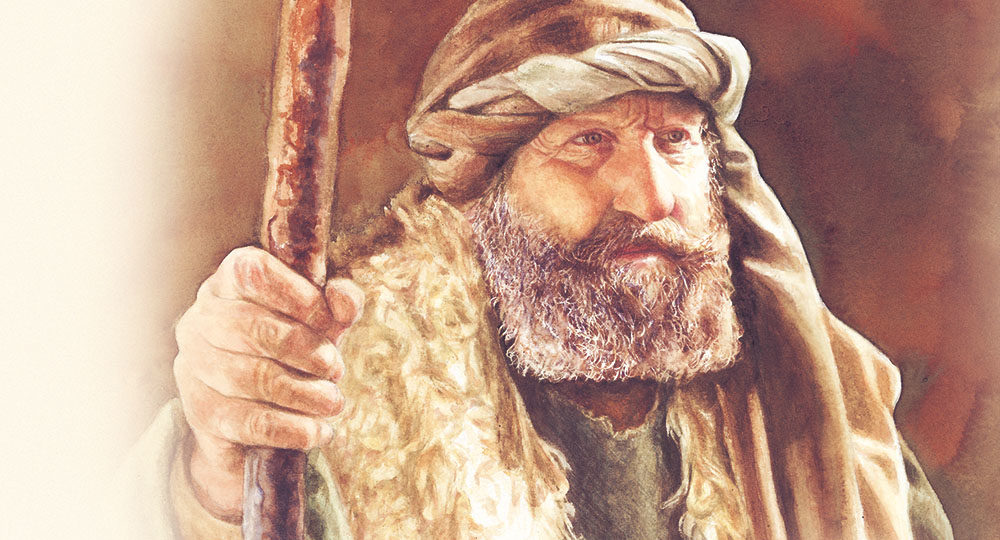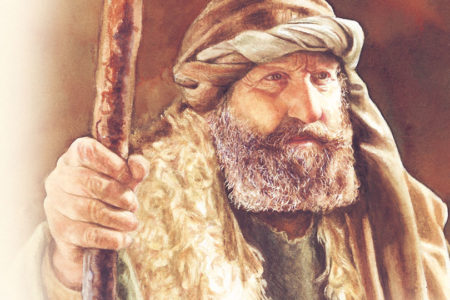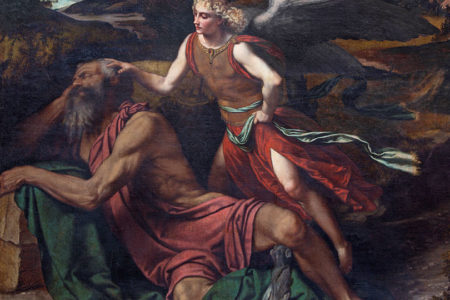Moses and Faith: Hebrews 11:23–29
The Faith of Moses’ Parents (v. 23)
Moses had a rich heritage of faith. Before his birth, Pharaoh of Egypt commanded that all male babies born to Hebrew women be killed (Ex. 1:15–22). When Moses was born, his parents had to make a difficult decision. Would they obey Pharaoh’s horrible command, or would they refuse to obey it? Apparently they discussed the issue and decided together that they would not obey the king. They hid Moses for three months after he was born (Ex. 2:1–2).
At least two things prompted this decision and action. First, Moses’ parents saw that he was “a beautiful child.” Far more was involved in what they saw than the fact that the baby Moses had an attractive physical appearance. Centuries later, when Stephen addressed this aspect of Moses’ life before the Sanhedrin, he declared that when Moses was born, he was “well-pleasing to God” (literal translation of the Greek text, Acts 7:20).
Stephen’s statement, together with that of Hebrews 11:23, suggests that Moses’ parents recognized that God had a special purpose for their son. Apparently God had given them some revelation to that effect. It is interesting to note that Josephus (a Jewish historian of the first century A.D.) claims that while Moses was in his mother’s womb, God revealed to his father that this child would be His deliverer of Israel from its bondage in Egypt.1 Moses’ parents exercised faith in God’s revelation.
The second thing that prompted the decision and action of Moses’ parents was that “they were not afraid of the king’s commandment.” Pharaoh had commanded the practice of infanticide against Hebrew male infants. The fact that the midwives who attended the birth of Hebrew children refused to obey the king’s command because they “feared God” (Ex. 1:17, 21) indicates that God earlier had given revelation forbidding infanticide. Moses’ parents believed so strongly in the reality of God’s existence, awesomeness, revelation for bidding infanticide, and severe judgment of those who disobey His revelation that they feared God and His mandate more than the king and his commandment. Thus, through faith they decided to obey God rather than man and graphically demonstrated the truth of the principle expressed in Proverbs 16:6: “by the fear of the LORD men depart from evil.”
It is apparent that Moses’ parents were people of faith who provided their son with a rich heritage of faith.
Moses’ 1st Act of Faith (vv. 24–26)
Realizing that it would be impossible to keep their baby son hidden indefinitely, through careful preparation Moses’ parents gave him up in such a way that his life might be preserved (Ex. 2:3–4). Through the providence of God, Pharaoh’s daughter found Moses, had compassion on him, unwittingly hired his own mother to nurse him, then adopted him, reared him as her own son, and thereby gave him the training and nurture characteristic of a prince (Ex. 2:5–10). The royal court taught Moses all the wisdom of the great nation of Egypt, and through time he distinguished himself through his words and deeds (Acts 7:22). Apparently the Egyptian society, including Pharaoh himself, was impressed with the abilities of this son of Pharaoh’s daughter and placed strong hope in his potential to greatly benefit the kingdom.
From the world’s viewpoint Moses had a bright future. He really had things going for him. He could have benefited himself greatly by holding onto his identity as the son of Pharaoh’s daughter and using it to his advantage. But by faith Moses, when he became an adult, “refused to be called the son of Pharaoh’s daughter” (v. 24). The verb translated refused refers to refusal in the absolute sense.2 Moses so decisively refused to continue being identified as the son of Pharaoh’s daughter that he never wavered from his decision.
Moses’ act of faith was based on two decisions. First, he chose to suffer affliction with God’s enslaved people of Israel instead of enjoying the pleasures of sin, which last for only a brief time (v. 25). As the son of Pharaoh’s daughter, Moses would have had unlimited access to every sinful pleasure Egypt had to offer. But he chose not to live just for the present. He refused to be a hedonist, believing that pleasure or personal happiness is the greatest good. Thus, instead of continuing to be identified as the son of Pharaoh’s daughter, he decided to identify himself with the despised Hebrews.
Second, Moses considered “the reproach of Christ greater riches than the treasures in Egypt” (v. 26a). His decision to identify himself with the despised people of God instead of continuing as the son of Pharaoh’s daughter caused him to be reproached by pagan, idolatrous Egypt, and especially by the very Pharaoh and elite rulers who were oppressing the Hebrews. Such a decision always antagonizes the world system, which is in rebellion against God, because it flies in the face of the very philosophy that motivates that system.
In the same manner, Jesus’ association of Himself with the despised publicans and sinners, instead of with the elite religious rulers of Israel, caused Him to be reproached by those rulers (Lk. 15:1–2; cf. Rom. 15:3) and, therefore, to be rejected by Judaism. Thus, Moses suffered the same kind of reproach as Jesus, and he regarded that reproach of greater value than the incredible stored treasures of Egypt to which he would have had access had he not changed his identification.
Pharaoh and the rest of Egypt must have thought that Moses was throwing away his whole life and was therefore crazy. What could have prompted this decision? The answer is that Moses “had respect unto the recompense of the reward” (v. 26b). The word translated the recompense of the reward literally means payment of wages.3 It refers to the eternal reward that God will give to those who obediently respond to and faithfully fulfill the divine call to service. Apparently Moses was aware that God had called him to be the deliverer of His people Israel from their slavery in Egypt, as indicated by Stephen’s statement in Acts 7:25.
The verb translated had respect expresses the idea of looking away from one thing in order to look to another.4 The prefix of that word has the force of in full.5 Its tense refers to curative action in the past.
In light of these observations, it can be concluded that Moses decided to permanently and fully look away from the temporal rewards that Egypt offered him and permanently and totally focus his attention on the eternal reward God would give him for obediently responding to and faithfully fulfilling His call to deliver His people from slavery in Egypt. God’s future eternal reward would be far greater than Egypt’s present temporal rewards. In other words, Moses’ decision to refuse to be called the son of Pharaoh’s daughter was prompted by faith—faith in the reality of God’s existence and in the reality of the promised reward.
Moses’ 2nd Act of Faith (v. 27)
“By faith he forsook Egypt.” Faith prompted Moses to leave Egypt.
Does this refer to his flight to Midian after he killed an Egyptian and was rejected by the Hebrews (Ex. 2:11–15; Acts 7:23–29), or does it refer to his leaving in the exodus some 40 years later (Acts 7:30–36)?
The exodus view has a problem. The writer of Hebrews referred to events in Moses’ life in chronological order, and he mentioned the departure of Moses from Egypt (v. 27) before he referred to the institution of the Passover (v. 28). It appears, then, that the writer had in mind a departure before the institution of the Passover. By contrast, it is a fact that the exodus departure took place after the institution of the Passover (Ex. 12).
In light of this problem, it seems that when the writer referred to Moses leaving Egypt, he meant his departure to Midian some 40 years before the exodus. This view, however, also has a problem. The writer of Hebrews stated that Moses did not fear the wrath of the king when he forsook Egypt (v. 27). By contrast, Exodus 2:14–15 indicates that once Moses learned that his killing of the Egyptian was known by others, he fled to Midian in fear of Pharaoh. Does this contradict what the writer of Hebrews said in verse 27 and therefore rule out the departure to Midian view? It does not, if the writer had in mind a different wrath of the king from that which Pharaoh expressed when he learned that Moses had killed an Egyptian.
The language of verse 27, together with the context, suggests that the writer meant the wrath of Pharaoh because Moses forsook Egypt, not his wrath because Moses killed an Egyptian. In light of all the nurturing and favors Pharaoh and his daughter had invested in Moses and their strong hope that he would greatly benefit their kingdom, his forsaking of Egypt must have stung them deeply. They probably regarded Moses’ action as a humiliating, ungrateful slap in the face. Certainly this act stirred up a more intense, enduring wrath in the king than the killing of an Egyptian.
Fear of that wrath might have caused many people to stay in Egypt to fulfill the king’s will, but not so with Moses. He did not fear the king’s wrath because “he endured” (steadfastly held out against its pressures).6 He endured, “as seeing him who is invisible” (v. 27), meaning that he persevered as if he saw him who is invisible.7 In other words, Moses’ faith in the reality of the invisible God who called him to do His will enabled him not to fear the wrath of the king and, therefore, to forsake Egypt.
Concerning this faith, Grundmann wrote,
Faith is the presupposition of endurance in a difficult situation. Faith makes it possible … The faith which makes endurance possible reaches through to Him who is invisible and grasps Him as something visible and present … What gives faith its distinctive quality is God’s invisibility … It is thus essential to the NT concept of faith that man should have, and that in difficult situations he should be empowered for action by, a faith in the invisible but efficacious existence of God.8
Moses’ 3rd Act of Faith (v. 28)
After Moses returned to Egypt some 40 years later, “Through faith he kept the Passover, and the sprinkling of blood.” The tense of the verb indicates that he instituted something that would be a perpetual observance for Israel (cp. Ex. 12:21–27). Moses did this because he believed God’s Word that, in conjunction with the Passover and sprinkling of blood, He would execute judgment against all the gods and firstborn of Egypt and would set the Hebrews free from their slavery (Ex. 12:12–13, 30–33, 41–42).
Conclusion
Moses’ life of faith provides a great example of how genuine faith in the reality of the invisible God prompts a person to withstand the pressures of the world system and adopt values and pursue goals different from those belonging to that system.
ENDNOTE
- Flavius Josephus, The Antiquities of the Jews, Book II, Chap. IX, 3 (London: Ward, Lock & Co., Warwick House, n.d.), 64.
- Heinrich Schlier, “arneomai,” Theological Dictionary of the New Testament, Vol. I, ed. by Gerhard Kittel, trans. and ed. By Geoffrey W. Bromiley (Grand Rapids, MI: Wm. B. Eerdmans Publishing Co., 1964), 469.
- William F. Arndt and F Wilbur Gingrich, A Greek-English Lexicon of the New Testament, 4th rev. ed. (Chicago, IL: The University of Chicago Press, 1957), 525.
- Brooke Foss Westcott, The Epistle to the Hebrews (Grand Rapids, MI: Wm. B. Eerdmanns Publishing Co., n.d.), 372.
- A. T. Robertson, A Grammar of the Greek New Testament in the Light of Historical Research (Nashville, TN: Broadman Press, 1934), 1379.
- Arndt and Gingrich, A Greek-English Lexicon, 406.
- Ibid.
- Walter Grundmann, “katereo,” Theological Dictionary of the New Testament, Vol. III, 617.









Iam blessed reading this